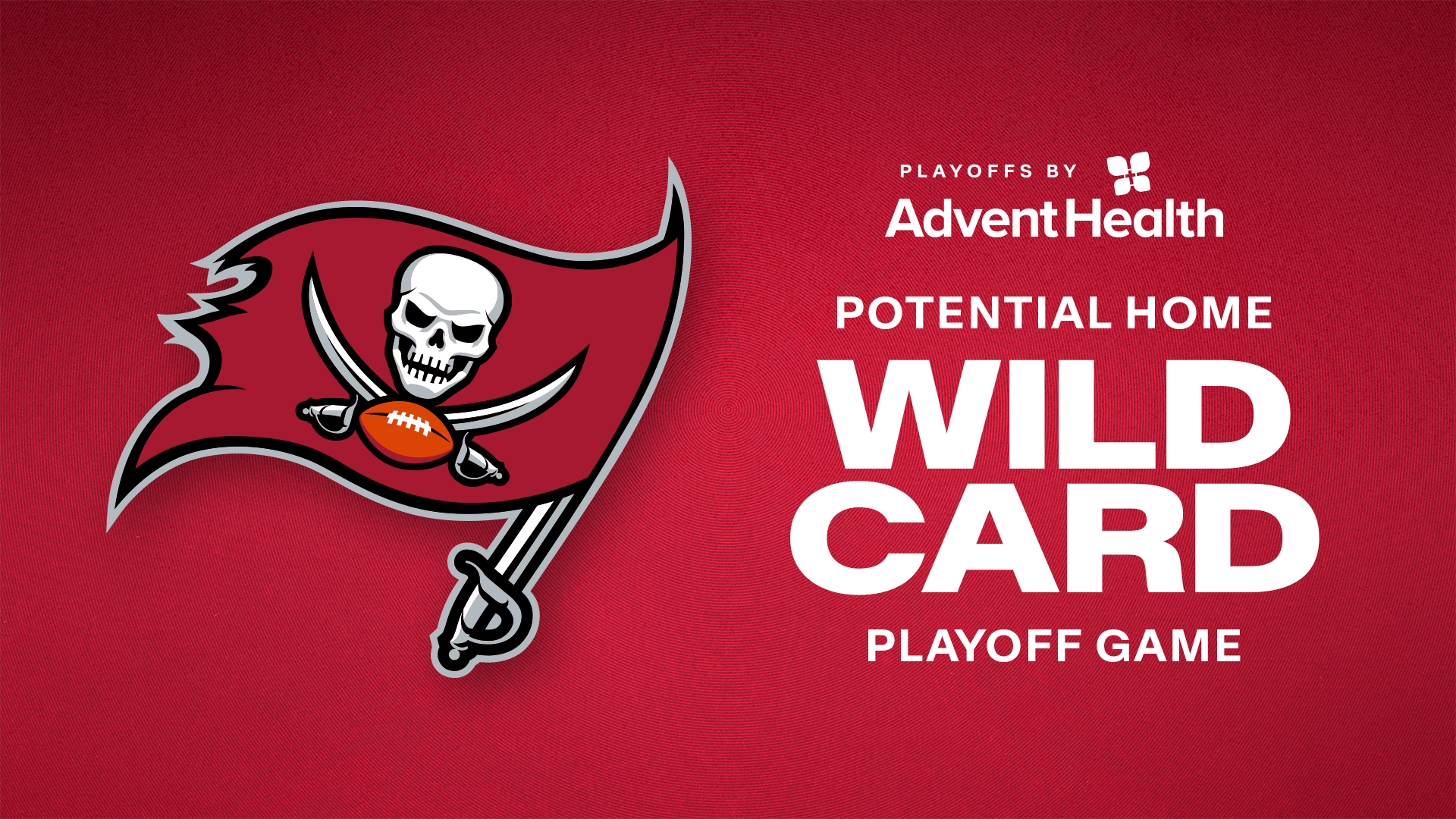For those of you who haven't noticed yet, I'm an enormous crossover video star now. Here's my latest appearance in front of the camera, which I'm sure has had hundreds of thousands of views by now: Answer Man, 6/16/11.
Just kidding. As you've seen if you've caught any of my videos so far, I'm still a little shy about showing the face of my mild-mannered alter ego, and they always shoot that right in my office. It's sort of a superhero convention, Tony Stark notwithstanding, to keep the secret identity, you know, secret, and I'm not about to risk my union card. I already paid this year's dues.
The videos are good harmless fun for me, and hopefully you like them, but I do have one little complaint. See, I don't get to choose which questions are thrown at me – they want to keep some element of surprise for me, make it more challenging – and sometimes I wish they would save specific ones for my written column. You know why…if a topic is interesting enough, there are any number of tangential directions we can shoot off into. That's when it gets fun.
An example: In that video linked above, I was asked to identify the latest the Bucs have ever scored in an overtime period. In other words, the longest game, in terms of official game clock, that the franchise has ever played. It wasn't a hard question – I quickly identified that memorable win over Atlanta in December of 2005, in which Matt Bryant kicked a field goal for a 27-24 win with just 15 seconds left in the extra period.
That game is fun to reminisce about in greater detail. So much happened before it was all said and done, and if you were there you would remember it as a night of wild emotion swings. A loss was essentially going to eliminate the Bucs from the playoff race but a win would keep them in line for the division title, so every time the momentum switched it was like the entire complexion of the season changed.
Neither team ever had a lead of more than seven points, and the game was at one point tied at 7-7, 14-14, 17-17 and 24-24. Bryant hit a clutch 50-yard field goal to knot the game at 17-all with nine minutes left in the game, but Michael Vick found Michael Jenkins on a third-down, 37-yard pass down to the Bucs' two less than five minutes later. The Bucs had one chance to respond and turned repeatedly to Cadillac Williams, who was getting hot again down the season's stretch after midseason injury issues. Williams ripped off one 14-yard run, converted a third-and-two with a four-yard run and finally scored on a fourth-down run from the six-yard line with 31 seconds to play.
The mood got even better in Raymond James Stadium a few minutes later when the Buccaneers won the coin toss for overtime and elected to receive. Then it took a sudden and depressing turn when Edell Shepherd – one of the heroes of the Bucs' equally dramatic win over Washington six weeks earlier – fumbled on the ensuing kickoff return, giving Atlanta possession at the Bucs' 18. That was clearly in field goal range, and the Falcons ran just two plays before sending Todd Peterson out to try a gimme 28-yarder. Everything that had been in the Bucs' grasp was about to slip away…and then defensive end Dewayne White amazingly blocked Peterson's kick!
Seeing no reason to mess with what was working, the Bucs gave it to Caddy three times in a row to start the next drive and he gave them 25 yards. Soon, Bryant was in range for his own gimme, a 27-yarder that seemed as sure as Peterson's. Unfortunately, this one failed, too, as Bryant's kick hooked left. One more punt apiece and the game was down to 1:52, with the Falcons starting over at their own 16. They got eight yards on three downs and, with 1:08 left on the clock, had to decide whether to punt and play for the tie or go for it on fourth down. If they were to fail on that fourth down, the Bucs would almost surely win on a short field goal. The Falcons elected to punt, believing a tie would be better for them in the playoff race than a loss, and the Bucs had just enough time to set up Bryant for a 41-yard game-winner.
So, if you were keeping track of overtime results and how they related to the opening coin flip, you would mark this down in the win-for-the-coin-flip-winner column. Of course, in reality winning the coin flip didn't help the Bucs at all, thanks to that Shepherd fumble. And, these days, sophisticated NFL analysts are going to draw a distinction between a game like that and one in which the coin-flip winner takes the opening possession down the field for the game-winning score without the kicking team ever having a possession.
In fact, the NFL was apparently convinced last offseason that there was a high enough percentage of that latter type of outcome to warrant a change in the overtime rules, at least for the playoffs (so far). Though it never came into play during the 2010 postseason, had there been occasion for overtime it would have operated under different rules. The new procedure would make sure the team that lost the coin flip would never lose the game without at least having the opportunity for a possession. If the team that won the flip scored on its opening possession, the other team would get one possession to try to tie or win the game, and if the game was tied after that the rules would then revert to regular sudden death.
So the Answer Man was wondering how often that rule would have come into play if it had been applied to all overtime games during the Buccaneers' 35-season history so far. As you may or may not know, Tampa Bay has played a total of 31 overtime games (not counting preseason) and is darn near dead-even in such affairs, with an overall record of 14-16-1. In case you're wondering, the Bucs are also almost dead-even in coin-flip results along the way, having won the toss 16 times and lost 15.
Believe me, those two totals – 14-16-1 overtime record and 16-15 coin toss record – have very little to do with each other. Twelve of those 31 games were won by the team that lost the coin toss. Only eight of the 31 were won on the first possession by the team that won the coin toss.
The way I see it, there are eight possible outcomes when discussing overtime coin flips and whether or not the game was won on the opening possession. They are listed below, with an abbreviation in parenthesis that indicates the coin toss result before the slash and the game result after the slash. For instance, "W/W1" means won the coin toss, won on the first possession. "L/LN1" means lost the coin toss, lost but not on first possession. Get it? Check it out:
- Won the coin toss; won on first possession (W/W1)
- Won the coin toss; won, but not on first possession (W/WN1)
- Won the coin toss; lost (W/L)
- Won the coin toss; tied (W/T)
- Lost the coin toss; lost on first possession (L/L1)
- Lost the coin toss; lost, but on first possession (L/LN1)
- Lost the coin toss; won (L/W)
- Lost the coin toss; tied (L/T)
I added the abbreviations because I wanted to put the results into a chart (naturally) and I needed it all to fit. So here's the chart; refer to the list above if you forget what any abbreviations mean:
|
|
W/W1 |
W/WN1 |
W/L |
W/T |
L/L1 |
L/LN1 |
L/W |
L/T |
|
1979 |
|
|
|
|
|
|
1 |
|
|
1980 |
|
|
|
|
|
|
|
1 |
|
1982 |
|
|
|
|
|
|
1 |
|
|
1983 |
|
|
|
|
2 |
1 |
|
|
|
1984 |
|
|
1 |
|
|
|
1 |
|
|
1985 |
|
|
|
|
|
|
1 |
|
|
1986 |
|
|
|
|
1 |
1 |
|
|
|
1988 |
|
|
1 |
|
|
|
|
|
|
1990 |
|
|
|
|
|
|
1 |
|
|
1994 |
|
1 |
|
|
|
|
|
|
|
1995 |
1 |
1 |
|
|
|
|
|
|
|
1996 |
|
1 |
|
|
|
|
|
|
|
2000 |
|
|
|
|
1 |
1 |
|
|
|
2001 |
|
1 |
1 |
|
|
|
|
|
|
2002 |
|
|
1 |
|
|
|
|
|
|
2003 |
|
|
1 |
|
|
1 |
|
|
|
2005 |
|
1 |
|
|
|
|
|
|
|
2006 |
|
|
1 |
|
|
|
|
|
|
2008 |
1 |
1 |
1 |
|
|
|
|
|
|
2009 |
1 |
|
|
|
|
|
|
|
|
2010 |
|
|
|
|
1 |
|
|
|
|
Totals |
3 |
6 |
7 |
0 |
5 |
4 |
5 |
1 |
As you can see, I broke that out into a year-by-year look, and I'm glad I did because it revealed a couple interesting trends. But first, the answer to our original question: Of the 31 overtime games in Buccaneers history, it appears that only eight would have been affected by last year's postseason revisions to the sudden-death rule. On three occasions, the Buccaneers won the toss and proceeded to score on that very first possession. On five occasions, their opponents won the toss and scored on their first possession.
That's only 20% of the time that the Buccaneers won the toss, and only 33% of the time that their opponents won the toss. Still, I'm sure it was frustrating on each occasion. To be thorough, I should probably point out one strange case in the above table that might apply to this discussion. On December 11, 1988, the Buccaneers and Patriots went to overtime in a game played at Sullivan Stadium. The weather was atrocious and a wind was whipping down the field in one direction. The Buccaneers won the toss but, believing the wind was a more important factor than first possession, elected to kick. That strategy backfired when New England took the opening drive for a score, winning 10-7 on a 27-yard field goal. Needless to say, that strategy has not been repeated since by a Buccaneer coach. You could say, however, that this is a ninth game in which the team with the opening possession won the game.
I'm not passing any judgment on the wisdom or necessity of the new postseason overtime rules (which many believe will eventually be expanded to include the regular season). I'm just saying that, for the Buccaneers, they would have come into play relatively rarely over the last 35 years.
Now, those interesting trends. Did you notice how the numbers in the chart are heavily on the right side in the team's early years, and heavily on the left side in more recent seasons? Look at that again – from 1976 through 1990, the first 15 years of franchise history, the team couldn't win an overtime coin toss to save its life. It lost on 11 of its first 13 tries; that's terrible! And the two times it did win the toss, it lost the game! Ouch. Pretty impressive, really, that the Bucs were able to win or tie six of those 13 games.
Since then, however, Buc coin-toss callers are an incredible 14-4 in overtime. All three of the team's win-on-the-first-possession overtime games have occurred since 1995, and two of the three happened during the last three seasons. That's right – from 1976 through 2007, the Buccaneers had just one game in which they won the overtime coin toss and then won on the first possession of sudden death.
See, this is the kind of the thing that the Answer Man finds particularly interesting, and it's the kind of detail we don't have time to get into in our video segments. However, since this isn't a question that any of you actually sent in, I guess it's time to stop indulging myself and dip into the actual mailbag. Let's go!
**
- Chris M. of Tampa Bay asks:
Answer Man, I was curious the other day at a question that I figured you would have an easier time answering for me. How many players have the Buccaneers drafted that have been on a team that has won a Super Bowl and which teams did they win them with? Thank you in advance. I love reading your columns.
Answer Man: Well, that's very nice, Chris. Thank you. I have to say, though, that your hometown entry is a little vague, unless you mean you actually live on a houseboat in the bay. C'mon, readers! I want to know if you're from Tampa or Dunedin or Riverview or Clearwater or whatever!
/pointless rant
Alright, Chris, I have researched your answer, but I wouldn't say it was easy. Just to make sure I was thorough, I found a way to create a list of every player who has ever appeared in a Super Bowl, and then I cross-referenced it with our 35-year list of Buccaneer draft picks. Kinda tedious, to be honest with you.
But worth it, because the answer is pretty interesting (to me, at least, and probably to Chris). First the raw numbers: The Buccaneers have drafted 42 players who have gone on to play in a Super Bowl. Obviously, a good number of those were players the Bucs drafted who were on Tampa Bay's Super Bowl XXXVII-winning squad…specifically, 18 of them (which, when I think about it, is actually a pretty small percentage of the 53-man roster for that game.
And, actually, I should say 45-man roster, because that's what we're really talking about here. This is about men who actually played in a Super Bowl, not ones who were on the roster or injured reserve or the practice squad. That's just how we're defining it here. So, therefore, a guy like Dan Goodspeed, who was on the Bucs' roster for SBXXXVII but was inactive for the game does not count, but DeVone Claybrooks, who did play in the game does count.
One other note: I DID choose to include quarterback Steve Young, who was picked by the Buccaneers in the 1984 USFL dispersal draft.
However, what you specifically asked me was guys we drafted who have won a Super Bowl. That number is 30, which includes the 18 aforementioned winners with the Buccaneers. In case you were wondering, those 18 players were S John Lynch (1993); DT Warren Sapp and LB Derrick Brooks (1995); FB Mike Alstott (1996); CB Ronde Barber and LB Alshermond Singleton (1997); CB Brian Kelly and C Todd Washington (1998); K Martin Gramatica and S Dexter Jackson (1999); G Cosey Coleman and LB Nate Webster (2000); T Kenyatta Walker, CB Dwight Smith, S John Howell, FB Jameel Cook and DE Ellis Wyms (2001); and S Jermaine Phillips (2002).
Here are the other 12, in chronological order of when they were drafted by Tampa Bay:
- S/CB Curtis Jordan – drafted by Tampa Bay in the sixth round in 1976, played five years for the Buccaneers and later was a reserve for the Washington team that won SBXVII after the 1982 season.
- T Charley Hannah – drafted by the Bucs as a defensive end in the third round in 1977, converted to offensive tackle while still in Tampa, then went to Oakland and started at left guard for the team that won SBXVIII after the 1983 season. That was the first Super Bowl played in Tampa, by the way.
- RB Johnny Davis – drafted by Tampa Bay in the second round in 1978, jumped to San Francisco for just one season in 1981 before moving on to Cleveland and landed with the 49ers at the right time, playing on the team that won SBXVI after the 1981 season.
- QB Doug Williams – drafted by Tampa Bay in the first round in 1978, spent five seasons in Tampa, then went to Washington (after a stint in the USFL) and, after serving as the backup for most of the 1987 season, started in SBXXII and led the Redskins to a lopsided win over Denver.
- QB Steve Young - drafted by the Bucs in the first round of the USFL draft in 1984, played two seasons in Tampa before being traded to San Francisco and was the starting quarterback for the 49ers' wins in SBXXIV and SBXXIX after the 1989 and 1994 seasons, respectively.
- T Harry Swayne – like Hannah, was drafted as a DE by the Bucs, in 1987, before converting to the offensive line; played four seasons with Tampa and then began a very fortuitous tour of the league that landed him as a starter on three different Super Bowl teams; lost his first Super Bowl with San Diego after the 1994 season but then won SBXXXIII with Denver after the 1998 season and SBXXXV with Baltimore after the 2000 season.
- DE Rhett Hall – drafted by Tampa Bay in the sixth round in 1991, played three seasons for the Bucs and then spent one year in San Francisco, where he was a reserve for the team that won SBXXIX after the 1994 season.
- DT Santana Dotson – drafted by Tampa Bay in the sixth round in 1992, played four seasons with the Bucs and then hopped as a free agent to Green Bay in 1996, where he was a part of the Packers' winning squad in SBXXXI after the 1997 campaign, starting at right defensive tackle.
- P Klaus Wilmsmeyer – drafted by the Bucs in the 12th round in 1992 (the last year the draft had that many rounds), did not make Tampa Bay's roster but did end up in San Francisco for the next four years and won SBXXIX with the 49ers after the 1994 season.
- QB Trent Dilfer – drafted by Tampa Bay in the first round 1994, played six seasons with the Bucs, mostly as a starter, then jumped to Baltimore just in time to start for the team that would win SBXXXV (in Tampa) after the 2000 season.
- DT Anthony McFarland – drafted by the Bucs in the first round of the 1999 draft and was with the team for the 2002 Super Bowl year but was on injured reserve for the playoff run; eventually traded to Indianapolis, where he started for the Colts team that won SBXLI after the 2006 season.
- G Russ Hochstein – drafted by Tampa Bay in the fifth round in 2001 but only briefly appeared on the Bucs' roster before moving to New England and beginning a long career as, mostly, a reserve; played in three Super Bowls for the Patriots, winning SBXXXVIII and SBXXXIX after the 2003 and 2004 seasons.
In case you were wondering, here are the 12 guys drafted by Tampa Bay who were on the losing end of Super Bowls with other teams. Each player's name is listed with the round and year he was drafted by the Buccaneers, the Super Bowl(s) he played in and the team he played for in that (those) game(s):
- CB Jeremiah Castille (3rd round, 1983; XXII, Denver)
- S Mike Prior (7th round, 1985; XXXII, Green Bay)
- DE Ron Holmes (1st round, 1985; XXIV, Denver)
- RB Don Smith (2nd round, 1987; XXV, Buffalo)
- DT Reuben Davis (9th round, 1988; XXIX, San Diego)
- P Chris Mohr (6th round, 1989; XXVI, XXVII, XXVIII, Buffalo)
- DT Mark Wheeler (3rd round, 1992; XXXI, New England)
- DT Chidi Ahanotu (6th round, 1993; XXXVI, St. Louis)
- DE Regan Upshaw (1st round, 1996; XXXVII, Oakland)
- G Frank Middleton (3rd round, 1997; XXXVII, Oakland)
- DE Joe Tafoya (7th round, 2001; XL, Seattle)
- S Will Allen (4th round, 2004; XLV, Pittsburgh)
Well, it looks like I've completely satisfied the parameters of your question by this point, but I can't help adding a few items of interest in these lists.
For instance, isn't it amazing how many players drafted by Tampa Bay took part in Super Bowl XXIX between San Francisco and San Diego at the end of the 1994 season. The winning 49er team featured three former Buc draftees, while the losing Charger group had two more.
I also find it interesting that the two defensive tackles the Buccaneers drafted and immediately inserted into their lineup in 1992 – Mark Wheeler and Santana Dotson – ended up opposing each other in Super Bowl XXXI five years later. In fact, Wheeler and Dotson are both listed as the starters at right defensive tackle in that game for their respective teams, New England and Green Bay.
Former Bucs Doug Williams and Jeremiah Castille also squared off in Super Bowl XXII, and while Williams was the game MVP with his four touchdown passes and 340 yards, Castille did manage to snare the only interception of the game off the Redskin passer.
You'll notice that each of the Buccaneers' first three college drafts produced at least one player who would later play in (and win) a Super Bowl. However, after that the went four years before drafting another player who would make the big game (Jeremiah Castille in 1983) and five before drafting one who would eventually win a Lombardi Trophy (Steve Young in the 1984 USFL draft). If you don't count that USFL draft, then it wasn't until 1987 (Harry Swayne) that a Buc draft produced another Super Bowl winner.
Both McFarland and Hochstein were fortunate to get another chance elsewhere after several of their fellow draftees made it into Super Bowl XXXVII with the Buccaneers. McFarland, of course, got a ring with Tampa Bay but didn't actually get to play in a Super Bowl until his one season with the Colts. Hochstein was the only one of the first six players drafted by the Bucs in 2001 not to play in SBXXXVII with Tampa Bay, but he more than made up for that with his three-SB run in New England.
S Will Allen, a fourth-round pick in 2004, is the only player drafted by Tampa Bay since its own Super Bowl win after the 2002 season to have made it into a subsequent Super Bowl. So far!
Note also that three former Buccaneers later went on to play in a Super Bowl that was staged back in the home stadium of their original team: Charley Hannah, Don Smith and Trent Dilfer. Two others ended up playing against Tampa Bay in Super Bowl XXXVII as members of the Oakland Raiders: Regan Upshaw and Frank Middleton.
**
- Rick Wohler of Miami, Florida asks:
Hey there, Answer Man! I'm a Bucs fan living in Dolphins country-please answer my question and give me some relief! This is it…last season was a good year to play the teams from the NFC West, ya know because all four teams really struggled last year. The Bucs got to do that and were able to beat all four of those teams, Arizona, Seattle, St. Louis and San Fran. I don't mean that in a bad way…I know every win is tough in the NFL. I'm just wondering if the rotation of divisions TB has played in the last 10 years or so matches up at all with the team's record each year. Can you look into that for me? Thanks, AM. Go Bucs!
Answer Man: Sounds like a chart to me!
What I'll do, Rick, is look at the last nine years, because that's how long the NFL has been going with its current scheduling format, where division-against-division matchups rotate each year, ensuring that every team will play a home and an away game against every other team at least once every eight years. Prior to that, the scheduling formula put a lot more emphasis on teams' records from the previous year, and that sometimes led to repeated out-of-division matchups or long droughts in which two teams never saw each other.
So now a team's 16-game schedule is comprised of the following: six games against your own division foes; four games against the teams from one of the other three divisions in your conference; four games against the teams from one of the four divisions in the other conference; and two games based on your record from the previous year. Those two games pit you against the teams that finished in the same place in the standings in the two divisions in your conference you are not matched up against that year.
To use the Bucs' 2011 schedule as an example, Tampa Bay will play six games against the NFC South, as always; four games against the teams from the NFC North; and four games against the teams from the AFC South. Since the Bucs finished third in the NFC South last year (despite a 10-6 record!), their final two games will be against the third-place teams from the NFC East and NFC West – Dallas and San Francisco, to be specific.
In 2012, the Bucs and the rest of the NFC South will be paired up against the NFC East and the AFC West. And so on. Since it's a three-division rotation in the NFC and a four-division rotation in the AFC for the Buccaneers, each season results in a different combination.
Okay, now it's chart time. Let's look at the nine seasons from 2002-10, which divisions the Bucs were matched up against each year, and what the W-L results were. In this chart, you'll see the Bucs' overall record, then how it broke down against the NFC South, the other NFC division the South was matched up against, the AFC division the South was matched up against and the remaining two games determined by record. For the other NFC and AFC divisions, the letter in parentheses indicates the specific division the Bucs faced – N for North; S for South; E for East; W for West.
|
Year |
Overall |
vs. South |
vs. NFC |
vs. AFC |
Other 2 |
|
2002 |
12-4 |
4-2 |
(N) 4-0 |
(N) 3-1 |
1-1 |
|
2003 |
7-9 |
2-4 |
(E) 4-0 |
(S) 1-3 |
0-2 |
|
2004 |
5-11 |
2-4 |
(W) 1-3 |
(W) 1-3 |
1-1 |
|
2005 |
11-5 |
5-1 |
(N) 3-1 |
(E) 2-2 |
1-1 |
|
2006 |
4-12 |
0-6 |
(E) 2-2 |
(N) 2-2 |
0-2 |
|
2007 |
9-7 |
5-1 |
(W) 2-2 |
(S) 1-3 |
1-1 |
|
2008 |
9-7 |
3-3 |
(N) 4-0 |
(W) 1-3 |
1-1 |
|
2009 |
3-13 |
1-5 |
(E) 0-4 |
(E) 0-4 |
2-0 |
|
2010 |
10-6 |
3-3 |
(W) 4-0 |
(N) 2-2 |
1-1 |
You really have to look hard to find any pattern in there, Rick. I do find it interesting that only one time in those nine years did the Bucs sweep their two games created by the previous season's record, and that came in 2009 when those two victories (over Green Bay and Seattle) accounted for two-thirds of the entire win total.
Part of the pattern problem is, as I mentioned above, the non-synchronous rotation of the AFC and NFC divisions creates different combinations each year. By that I mean, in those nine years the Bucs never played the exact same pair of AFC and NFC divisions twice. That's kinda cool, actually. This season the Bucs will play yet another new combination when they take on the teams of the NFC North and the AFC South. It won't be until 2014 that the Bucs finally duplicate one of their previous pairings, taking on the teams of the NFC North and AFC North, just as they did in 2002. Hopefully, the season will unfold in a very similar manner!
I guess you could say that the Bucs have fared particularly well when they've had the NFC North on the docket. Maybe they still get fired up to face all those foes from the old NFC Central. Tampa Bay took on the NFC North (Chicago, Detroit, Green Bay and Minnesota) in 2002, 2005 and 2008 – 2002 and 2005 were both division-winning campaigns and 2008 represented a very narrow miss on the playoffs. The Bucs have also finished with a winning record two of the three times they've been matched up with the AFC North (the only AFC division they've already played three times since the 2002 realignment).
As to your specific question about the NFC West, that's been a mixed bag for Tampa Bay. The Bucs were 1-3 against that division in 2004 en route to a 5-11 record, but 2-2 in 2007 on the way to a Wild Card berth and 4-0 last year as part of a 10-6 overall record. Facing the NFC East has been the worst matchup, as the Bucs finished with a sub-.500 record each of those years. Their own mark against the East teams hasn't been bad, however – 4-0 in '03, 2-2 in '06 and 0-4 in '09 for a .500 record overall.
The AFC West has not been a good omen for the Buccaneers. They've been matched up against that division twice in the last nine years and gone 1-3 both times against the foursome of Denver, Kansas City, Oakland and San Diego. That was part of a 5-11 finish in 2004. In 2008, the Bucs finished 9-7 despite their 1-3 mark against the West, but it was back-to-back season ending defeats handed down by San Diego and Oakland that kept Tampa Bay out of the playoffs.
In short, I'm not seeing much of a trend in any direction here, Rick. You've just got to beat whoever's on your schedule.
**
- LaDarrien Young of Shreveport, Louisiana asks:
Hello Answer Man my name is LaDarrien Young. I am an extreme Bucs fan and I've loved watching the team since I was 4. I was at the Tampa vs. Atlanta game of week 15 in the 2010-11 season and during the end of the game Josh Freeman threw a pass in which I still think to this day isn't really an interception. I was wondering if you could break that play down for me? Hope you answer back and GO BUCS!
Answer Man: Hello, LaDarrien! Awesome to hear from extreme Buc fans from around the country. And, man, I feel your pain on the play you described. It's one of those "what-if" moments from last season, in which the Bucs just missed a playoff spot on a tiebreaker to the eventual Super Bowl champs, Green Bay. Another one: The offensive pass-interference flag against Kellen Winslow in the Week 15 loss to Detroit.
I'll break it down for you, LaDarrien, because I'm here to please, but in the end we're going to have to accept the fact that it was a judgment call. Even with the advantage of replay, it's hard to say with absolute certainty whether the interception was clean or not.
So let's set the stage. It was actually Week 13, with the Falcons in town for a critical NFC South showdown. Atlanta was 9-2 coming in, the Bucs 7-4. A win would pull Tampa Bay within a game of first place in the South; a loss would come close to eliminating the Bucs from the division title race.
The Bucs, wearing their throwback uniforms and hoping to duplicate the previous year's orange-clad upset win over the Packers, took a 24-14 lead five minutes into the fourth quarter on Earnest Graham's tricky two-yard option pass to tight end John Gilmore. Unfortunately, Atlanta's Eric Weems took the ensuing kickoff 102 yards for an answering touchdown and the Falcons' comeback was on.
With 4:31 to play, Atlanta took the lead on a nine-yard Matt Ryan-to-Michael Jenkins touchdown pass. That was disappointing to the Raymond James Stadium faithful, but there was still plenty of time for young Josh Freeman, already a master of the fourth-quarter comeback, to pull out another big win.
And Freeman did get the Bucs into Atlanta territory, thanks to a 21-yard pass to Mike Williams on third-and-10 and an incredibly clutch 19-yard grab by Sammie Stroughter on fourth-and-12. On the very next play, however, Freeman tried to throw an out to the right sideline to Williams, but Atlanta's Brent Grimes broke in front of the receiver and made a diving interception. Grimes then got up and returned the ball 33 yards to the Bucs' 48.
Here's the part that is still eating at poor LaDarrien, I'm sure. As he dived and caught the ball, Grimes rotated his body so that he landed on his side, coming down on his right elbow. He then rolls over on his back, and his lower body flips over until he lands on his left side. As this occurs, you can see on the replay that the ball is momentarily dislodged from Grimes' grasp, and it's moving about on his chest and stomach as he's rolling on his back and then onto his left side.
The question is, does the nose of the ball touch the ground as Grimes is rolling onto his left side and before he has regained control of it with his arms and hands? I think you know where LaDarrien stands on that issue.
This play occurred right after the two-minute warning, which means it was up to the replay assistant upstairs to call for a review, and he did so. However, even after the review, the play was upheld and the Falcons were able to run the last 1:50 off the clock.
The Answer Man's take: There's enough there to make you wonder, which is of course why the play was reviewed in the first place. My Buc bias makes me want to say, 'Yes, unequivocally, I can see the ball, loose from Grimes' grip, sliding down and touching the ground.' As you probably know, LaDarrien, it's the same concept here as with a reception – since he's falling as he makes the catch, Grimes would have to hold onto it through contact with the ground for it to stand. Honestly, though, I see something that makes me wonder, but I can't say with any certainty that he doesn't have control of the ball before it touches the ground.
So, again, it was a judgment call, and it was reviewed by replay, so the officials obviously couldn't find anything to make them overturn the interception. What's done is done. Keep in mind, too, that even if the play had been overturned, the Bucs still needed to get 27 more yards to get the ball into the end zone, as the Falcons were winning by four and a field goal would do the home team no good. I'd like to believe that Josh would have done just that, but we can't assume it. Best thing to do, LaDarrien, is let it go and turn your attention to 2011. We need to get those Falcons!
**
- Austin of Punta Gorda, Florida asks:
Hey, Answer man. It's me again, back with another question I hope you'll be able to answer. This time, I was curious about old (perhaps "experienced" would be the better euphemism?) players. Who was the oldest player to ever appear in a game? To start a game? How about to win? Would that change if you excluded kickers? What about playoff appearances? Finally, who was the oldest player to win a Super Bowl ring? Thanks, Answer Man, should you choose to attempt this question.
Answer Man: Some of you may be saying to yourself, 'Man that Austin guy sounds familiar,' or less charitably, "Man, that Punta Gorda fellow seems to get a question into every other column."
I know, I know. Thing is, my buddy Austin here sends in LOTS of questions. He obviously has a curious mind and an insatiable appetite for NFL information. I don't like to go to the same well too often but, quite honestly, the mailbag has been a little thin in recent weeks. If you don't want this to turn into a one-on-one between me and Austin, go here to send in some questions of your own.
But for now, it's another turn in the spotlight for Austin, who now wants to know about old dudes on the gridiron. We don't need to worry about euphemisms here, Austin; they don't fool anybody anyway.
The answer to much of your question is a man of whom you've probably heard: George Blanda.
Blanda played an incredible 26 seasons in the NFL, and you can probably do the math from there. Unless he snuck into the league when he was 16, he was going to have to still be out there well past 40 and closing in on 50.
In fact, Blanda was 48 during his last season, 1975. By that point, he was just a kicker but he also played quarterback for much of his career and even a little linebacker. Blanda threw the occasional pass here or there as the Oakland Raiders' kicker in the early '70s, but the last season in which he threw at least 50 passes was 1971, when he was 44 (his birthday was in mid-September, so he was 43 when the season began). Blanda was 41 in 1968 when he made his last start as a quarterback, helping the Raiders get a win.
By the way, Blanda still holds the NFL records for most seasons played (26) and most extra points attempted (959) and made (943). He was not the oldest quarterback ever to start a game, however. He isn't even in the top three. Two of the three are actually former Buccaneers.
Steve DeBerg (with Atlanta in 1998), Vinny Testaverde (with Carolina in 2007) and Warren Moon (with Kansas City in 2000) were all 44 years old when they started their last NFL games. I listed them in that order because DeBerg was the oldest of the three in terms of years and days, followed by Testaverde…both were former Bucs. In fact, both were on Tampa Bay's roster at the same time in 1992.
I know you didn't specifically ask me about quarterbacks, but other than kickers they do tend to be the players most likely to extend their careers into their 40s. The oldest quarterback to start and win a Super Bowl was John Elway, who was 38 when he led Denver to victory in SBXXXIII, his personal swan song. The oldest quarterback to win a playoff game of any variety was Phil Simms, how was a little over 39 when he led the Giants to a 17-10 win over Minnesota in a 1994 Wild Card game.
Thanks to the website for the Pro Football Hall of Fame – which is an awesome source for information and trivia on NFL history – I can tell you the oldest players in NFL history, beyond the obvious kickers. Seriously, it's a great site – go there.
Blanda is number one, as mentioned, at 48 years old. Kicker Morten Anderson nearly matched him, last playing in 2007 when he was 47.
The oldest non-kicker to play in a game was 45-year-old end Bobby Marshall. Remember ol' Bobby Marshall? Of course you do! Yes, that Bobby Marshall who played for the Duluth Kelleys and was 45 when he took the field in 1925. You realize that means Marshall was born in 1880! The Answer Man has had to do a lot of digging through league annals thanks to you people and your crazy questions, but I'm certain I wouldn't have come up with Bobby Marshall of the Duluth Kelleys without profootballhof.com.
John Nesser, a guard/tackle for the 1921 Columbus Panhandles, was also 45 when he played his last game. The NFL only officially took shape in 1920, so you can see how long these marks have stood.
DeBerg, Moon and Testaverde check in at 44 years old, as does kicker Eddie Murray. There are a handful of 43-year-olds who played, including punters Jeff Feagles and Sean Landeta (another former Buc) and a couple offensive linemen. The first defensive player on the list – and I can proudly say that I accurately guessed this one – was former Washington Redskins star cornerback Darrell Green, who last played at the age of 42. Man, Darrell Green was great! Another NFL great, wide receiver Jerry Rice, played until he was 42.
Who is the oldest player to start a game, since kickers don't officially get the start? According to pro-football-reference.com (another awesome site), both Marshall and Nesser started at least one game in the aforementioned seasons, so there's your answer. The three quarterbacks listed above come next, and then guard/tackle Ray Brown, who was 43 when he started two games for the Washington Redskins in 2005.
Who was the oldest player to start and win a game? Hmmm. That's a little tough because of John Nesser. The kickers are out and Bobby Marshall is out because the Kelleys lost all three games they played in 1925. It's a harder call on Nesser, who was one of the famous Nesser brothers who all played in the early days of the NFL. The Nessers were the NFL's most famous family in those days; in fact, Ted Nesser was a player-coach for the Panhandles in 1921 and his son, Charlie, played on the team. That's the only father-son pair of teammates in NFL history.
But I digress. The problem here is that John Nesser is shown as playing two games in 1921, with one start. The Panhandles played a total of nine games that year, but only one the last one. The question is, did John's one start coincide with that one win? I can't rule out the possibility.
If Nesser isn't the answer, then it's Testaverde, who started six games for the Panthers in 2007 and won two of them. The last was against San Francisco on December 2, when Testaverde was 44 years and 29 days old. (By the way, Testaverde's final game ever was actually against the Buccaneers in Tampa on December 30 of that year. He didn't start the game or throw any passes, but he did come in for one kneel-down.)
Did I get to all your sub-questions, Punta Gorda's Austin? Let's see…ah, the Super Bowl. I touched on that above with John Elway, but the oldest player to start in a Super Bowl overall was Rice, who was 40 years and a little over three months when he started against your Buccaneers in SBXXXVII…and lost. The oldest player to play in a Super Bowl, period, was Indianapolis kicker Matt Stover, who was 42 when he was on the losing end of SBXLIV against New Orleans just two years ago.
And the oldest player to start AND win a Super Bowl. Well, that's still Elway. See above.
**
Alright, that's going to do it for this column. Remember the days when I would tackle 12 or 15 questions at once? Yeah, not so much anymore. I think I'm liking this slightly shorter approach, but I also have to admit that I'm a little short on questions anyway. I'm just saying. Here's that link again: Answer Man submit form.
Until next time: Go Bucs!




































